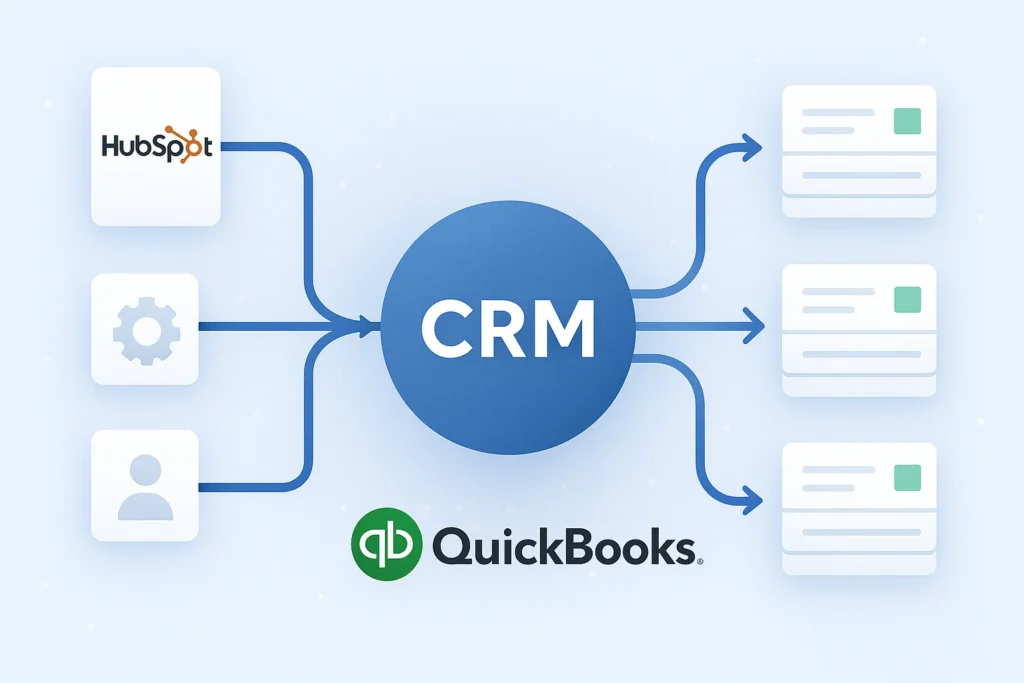Manufacturers juggle production planning, inventory management, shop floor operations, supply chain coordination, and customer relationships every day. When these activities remain siloed in spreadsheets, outdated ERP modules, or email threads, frustration and inefficiency grow. A dedicated manufacturing CRM with production scheduling, batch tracking, and quality control modules unifies your factory operations and drives production efficiency. Without it, your shop floor, procurement team, and sales staff work in isolation.
Below are the eight biggest challenges you face without a manufacturing CRM platform designed for factories, plant managers, and supply chain teams.
Table of Contents
I. Sales and Production Teams Work in Isolation
Your sales representatives book orders and negotiate custom configurations, but production managers never see live order details. They rely on emailed specs or scanned PDFs. This disconnect creates errors in production planning, assembly line tracking, and raw material management. When teams collaborate inside a manufacturing CRM, sales orders flow directly into production scheduling software and ERP integration. Without it, you lose time, materials, and customer trust.
II. Inventory Visibility Stays in Spreadsheets
A modern factory needs real‑time stock levels, lot tracking, and reorder alerts. When your inventory management system sits separate from customer data and purchase orders, you face understocked raw materials or overstocked finished goods. Manual stock counts and spreadsheet updates delay production runs. A manufacturing CRM integrated with inventory modules gives you automated alerts, bin location updates, and just‑in‑time replenishment. Without it, you risk line stoppages, costly expedited orders, and idle labor.
III. You Miss Critical Follow‑Ups with Distributors
B2B distribution channels and OEM clients expect timely communication on order status, change requests, and shipment schedules. When you manage client interactions by calendar reminders or memory, follow‑ups slip. A manufacturing CRM automates tasks for sales quoting, order confirmations, and delivery notifications. It logs every call, email, and meeting note in the customer history. Without this centralized customer database, you lose renewal deals, damage distributor relationships, and hamper revenue growth.
IV. Order Management Remains Manual and Risky
Handling quotes, approvals, and order modifications through email attachments and printed forms wastes time and invites error. A manufacturing CRM streamlines quote creation, revision control, and approval workflows. When your shop floor operators and procurement team see the same live order record, they avoid mistakes in machine setup, tooling changes, and purchase requisitions. Without automated manufacturing workflow automation, you face order delays, cost overruns, and unhappy customers.
V. You Lack Real‑Time Shop Floor Analytics
Factory managers need dashboards for cycle times, downtime reasons, and yield rates. When you compile data manually from multiple systems, insights arrive too late to prevent bottlenecks. A manufacturing CRM with shop floor analytics and production efficiency reports reveals performance gaps in real time. You spot machine inefficiencies and adjust production planning instantly. Without these insights, you make reactive decisions based on outdated reports and miss opportunities to improve throughput.
VI. After‑Sales Service and Maintenance Slip Through Cracks
Manufacturers who sell equipment, spare parts, or maintenance contracts must track service calls, warranty renewals, and spare‑part orders. Without a CRM, service tickets open in email inboxes and technicians log calls on paper forms. A manufacturing CRM handles maintenance management and service workflow tracking so you schedule preventive maintenance, record work orders, and alert clients about service windows. Without it, you lose contract renewals and receive negative reviews for unreliable service.
VII. Quality Control Issues Go Untracked
Consistent quality inspection and regulatory compliance depend on systematic issue logging, corrective‑action plans, and audit trails. When quality control records live in separate spreadsheets, you struggle to trace defects to specific production batches. A manufacturing CRM logs nonconformances, links them to lot numbers, and triggers root‑cause investigations. You improve your continuous improvement initiatives and maintain ISO compliance. Without this, you face product recalls, noncompliance fines, and reputational damage.
VIII. Cross‑Functional Collaboration Remains Fragmented
Procurement, engineering, production, warehouse, and sales teams often use different tools for project management. This fragmentation leads to duplicated work, version conflicts on bills of materials, and unclear handoffs. A manufacturing CRM centralizes collaboration by offering shared dashboards, document management, and integrated project timelines. Teams see every customer requirement, change request, and delivery milestone in one place. Without this unified platform, you waste meetings, miscommunicate priorities, and slow your time to market.
Summary: Core Problems Without Manufacturing CRM
- Siloed sales and production planning
- Spreadsheet‑based inventory management
- Missed B2B distributor follow‑ups
- Manual, error‑prone order workflows
- No real‑time shop floor analytics
- Untracked after‑sales service tickets
- Inconsistent quality control logging
- Poor cross‑department collaboration
If your factory struggles with any of these issues, a manufacturing CRM with production scheduling, shop floor analytics, and quality management could transform your operations. You will improve production efficiency, reduce costs, and enhance customer satisfaction from order entry to after‑sales support.
Ready to see how a manufacturing CRM fits your factory? Contact us for a free demo of our CRM built specifically to resolve operational issues faced by manufacturing companies. From production planning and inventory control to sales coordination and after-sales service, our solution is designed to streamline every part of your workflow. Let’s make your factory more efficient, responsive, and customer-ready.






 Blog
Blog Case Studies
Case Studies Career
Career